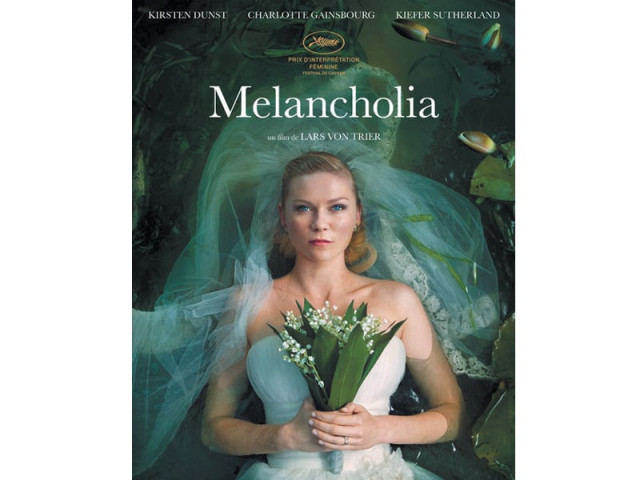Film review: Melancholia - crash into me
Lars Von Trier’s films aren’t really known for their mass appeal - at least you’ll be in for a visual treat.

Fans of Trier’s work may have been surprised by the subject of Melancholia, but it is actually not a great departure from his earlier films. This is because humanity’s impending demise merely serves as a cursory backdrop to a more intense focus on the rocky relationship between two sisters.
Melancholia is the name of the planet that is about to come crashing into Earth, and also refers to the despair that dwells within the main characters, Claire and Justine. Justine, played by Kirsten Dunst, is the fair-haired, fragile bride who opens the film. Justine is celebrating her wedding to Matthew, and her sister Claire (Charlotte Gaingbourg) has arranged a lavish reception for her. This should be a day of happiness, except everything goes wrong: we see that Justine is continuously unsettled, plagued by an unexplained flightiness that has her skip out on parts of the reception. Tension flairs between the sisters, with Claire angrily reminding Justine that she had promised to be good. Justine’s behaviour is only partly explained in the second half of the film, when Claire mentions to her husband that her sister is ‘ill’ — this, and other scenes, hint that Justine is suffering from some sort of depression… in other words, melancholia. Even though she is chastised by other members of her family for doing so, Claire continues to take care of Justine, trying to be the responsible adult. Ironically, even in her compromised condition, some things are clearer to Justine than to Claire — like the need to accept the frailty of human life.
The movie is divided into two parts, with the first focusing on Justine and the wedding and the second peering deeper into Claire’s attempts to comprehend the enormity that is Melancholia. Like this narrative structure, and the dual meaning implied by the film’s title, almost every word uttered in this film has another context and is heavy with the weight of that which is left unsaid. All of this may make the film an interesting work to deconstruct and analyse, but does it make for pleasurable viewing? Not really. The movie only really begins to make sense in the second half, as Claire’s more coherent vision begins to assert itself — most viewers may not want to wait around that long.
That said, Lars Von Trier’s films aren’t really known for their mass appeal, so if you’re willing to overlook that, you should know that at least you’ll be in for a visual treat. Trier mixes closely shot, highly emotive scenes with beautiful and otherworldly images of planetary movements, and the effect is stunning. As the movie draws to a close and Melancholia looms ever closer to Earth, the planet’s huge face hauntingly begins to dominate everything — the skyline, Claire’s every thought. The claustrophobia of the situation is heightened because Von Trier focuses on only a few characters during what should be a mass catastrophe.
Dunst and Gainsbourg have acted superbly, a testament to this is that although other stars like Charlotte Rampling make an appearance, no own really makes an impact except the sisterly duo. For me, the film’s best scene is this: Claire, ever the one with a plan, brokenly tells Justine that if they all must die, she wants to do it ‘right’ — with a glass of wine on the balcony, overlooking the looming planet. Justine, remarkably clear-sighted now despite her condition, says: “That’s a piece of shit.”
Ultimately, Claire and Justine have to come to terms with the reality that Melancholia overtakes everything.
Published in The Express Tribune, Sunday Magazine, October 16th, 2011.



















COMMENTS
Comments are moderated and generally will be posted if they are on-topic and not abusive.
For more information, please see our Comments FAQ